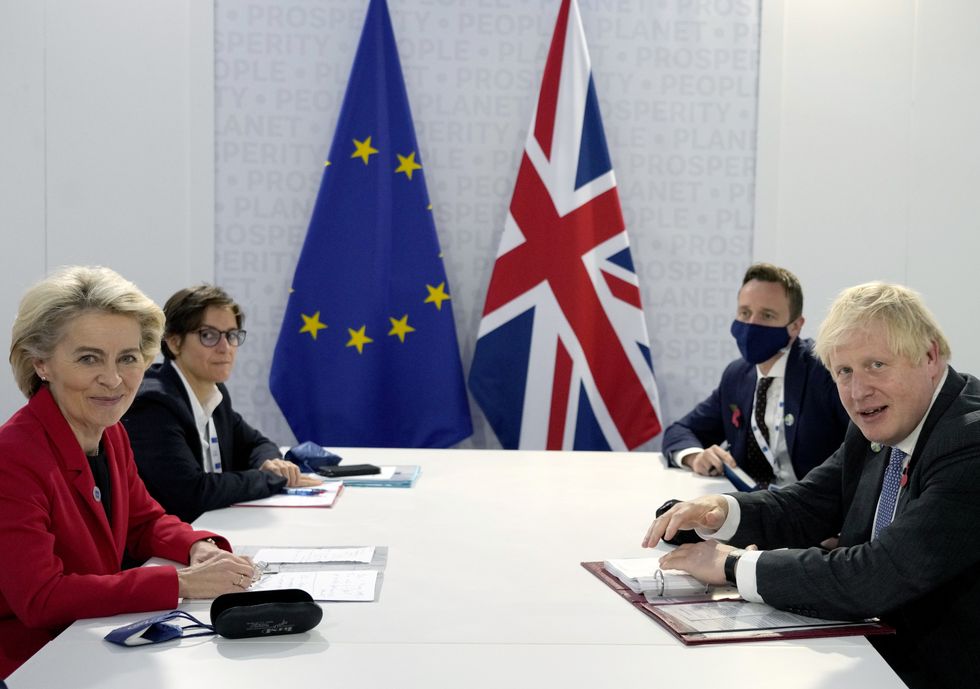Don't Miss
Most Read
Trending on GB News
A Brussels-backed report on the Article 50 process saw MEPs suggest the Remain campaign could have won the vote that saw the UK leave the Brussels bloc.
It continued with a not-so-subtle swipe at the “often misled” British voter, adding Leave would not have won the historic campaign had the risks of withdrawing from the EU been made clear.
The report says: “British citizens had scant knowledge about the European Union and were not adequately informed about the far-reaching consequences of the decision to leave the union.
“Citizens were never given a clear picture of the relationship their country would have with the EU once it left, and were often misled about the implications of the withdrawal, especially as regards Northern Ireland.”
David Frost, Boris Johnson, Ursula von der Leyen and Michel Barnier during the Brexit talks
Etienne Ansotte/European Commission
In a rare moment of self-criticism, the report adds MEPs regretted the “limited engagement” of the European Parliament in the run-up to the vote.
MEPs added they had left UK citizens without full access to information on how the EU works and the implications of Brexit.
The report warned future referendums in the bloc were at risk of fake news, suggesting misinformation was heavily involved in the Leave campaign.
After attacking the UK Government, accusing it of failing to plan for Brexit, MEPs wasted no time in praising themselves.
The EU congratulated itself for securing a favourable financial settlement in the Brexit deal, protecting the rights of citizens and its conduct over the Irish border.
MEPs were also congratulated for preserving “the European integration process” and preventing other countries from leaving.
The report was backed by a majority of 516 votes, in the 716-member parliament.
But it has been widely dismissed in the UK for its “lecturing” tone and ridiculed on social media.
Lord Moylan tweeted: “How many of these MEPs are troubled by the fact that they are now undemocratically making laws for a foreign territory that has no say in them, in plain contradiction of the spirit of the EU Charter of Fundamental Rights?”
Britain left the EU in January 2020, almost four years after the referendum
Kirsty Wigglesworth
In response to the report, the Bruges Group added: “More likely to have increased the margin of victory for Leave, we suspect…”
A UK Government source told The Telegraph: “Being lectured on transparency by the European Parliament shows just how little many in the EU have learnt from Brexit.”
They added: “We will go further and faster to deliver on the promise of Brexit and take advantage of the enormous potential that our new freedom brings.”
It comes as Boris Johnson is poised to strike a historic new deal with Australia.
Taking to Twitter last night, Mr Johnson wrote: “The UK and Australia are the closest of friends and historic allies.
“Tonight Prime Minister @ScottMorrisonMP and I agreed to strengthen the partnership between our nations, making it fit for the next century and grounded in our shared priorities on security, democracy and trade.”
It cements Downing Street’s foreign policy shift towards the Indo-Pacific region after Brexit.
The agreement is specifically intended to strengthen resilience in cyberspace, foreign state threats, and maritime security.
The deal is set to be worth a reported £25million.
Want to have your say? Please leave a comment below.












